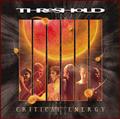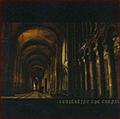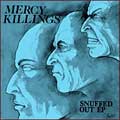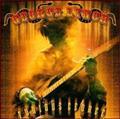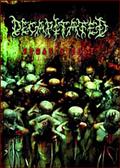SKYCLAD (uk) - A Semblance of Normality (2004)

Label : Demolition Records
Sortie du Scud : 21 juin 2004
Pays : Angleterre
Genre : Folk Metal
Type : Album
Playtime : 13 Titres - 47 Mins
Onzième album pour les mythologiques musiciens britanniques de SKYCLAD, propagateur du Folk Metal du début des années 90. Paru dernièrement en 2004, cette ultime livraison en date baptisée A Semblance of Normality marquait un changement distinctif et considérable dans la carrière du combo de Newcastle avec ni plus ni moins que le départ de leur charismatique et despotique leader Martin Walkyier.
Le plus drôle dans l’histoire si on peut dire est que ce disque est sans nul doute celui qui s’est le mieux écoulé dans les bacs et celui bénéficiant de la meilleure production ! Onze albums après, il était peut-être temps pour ce groupe relativement peu exposé et connu qu’une certaine forme de reconnaissance s’abattent sur eux… A Semblance Of Normality engendre ainsi une sorte de nouveau départ et de remise en question musicale pour les cinq hommes de la perfide Albion.
Assez loin du Thrash Metal basique de leurs débuts, les compositions de A Semblance of Normality se rapprochent un peu plus de celles de leurs confrères irlandais de CRUACHAN. Les influences Folk sont de ce fait légions dans les compositions du combo anglais qui de plus est toujours assez engagé dans leurs textes. Les violons du Royal Philarmonic Orchestra de Londres, les claviers, les cornemuses et le Bodhran font le reste et ajoutent la touche épique et valeureuse aux titres. Pourtant, un changement s’opère de manière flagrante sur cette galette : les compositions sont un tantinet plus lourdes que d’habitude ! Les riffs sont plus incisifs et percutants comme on pourra le constater sur des pistes telles que «Do They Mean Us ?», titre puissant et homérique ouvrant l’opus de la plus belle des manières après une intro à la cornemuse annonçant la couleur. Les titres d’obédience Thrashy reprennent place comme «A Good Day to Bury Bad News», la rythmique puissante contenue dans «A Survival Campaign» ou dans «Ten Little Kingdoms» et «Hybrid Blues», les titres speedés de l’opus alors que les titres plus Folk Rock avec des couilles imposent une ambiance de fête : «Another Drinking Song», le genre de titre où la bière coule à flot !
Il en résulte alors un ensemble musical touffu et riche où les Magpies font de cet opus l’un de leurs albums les plus Rock de leur longue et fastidieuse discographie. Un groupe à remettre au gout du jour tant ils ont apporté au Folk Metal en règle générale.
A redécouvrir…
Ajouté : Jeudi 15 Mai 2008
Chroniqueur : Loki
Score :    
Lien en relation: Skyclad Website
Hits: 11395
|




